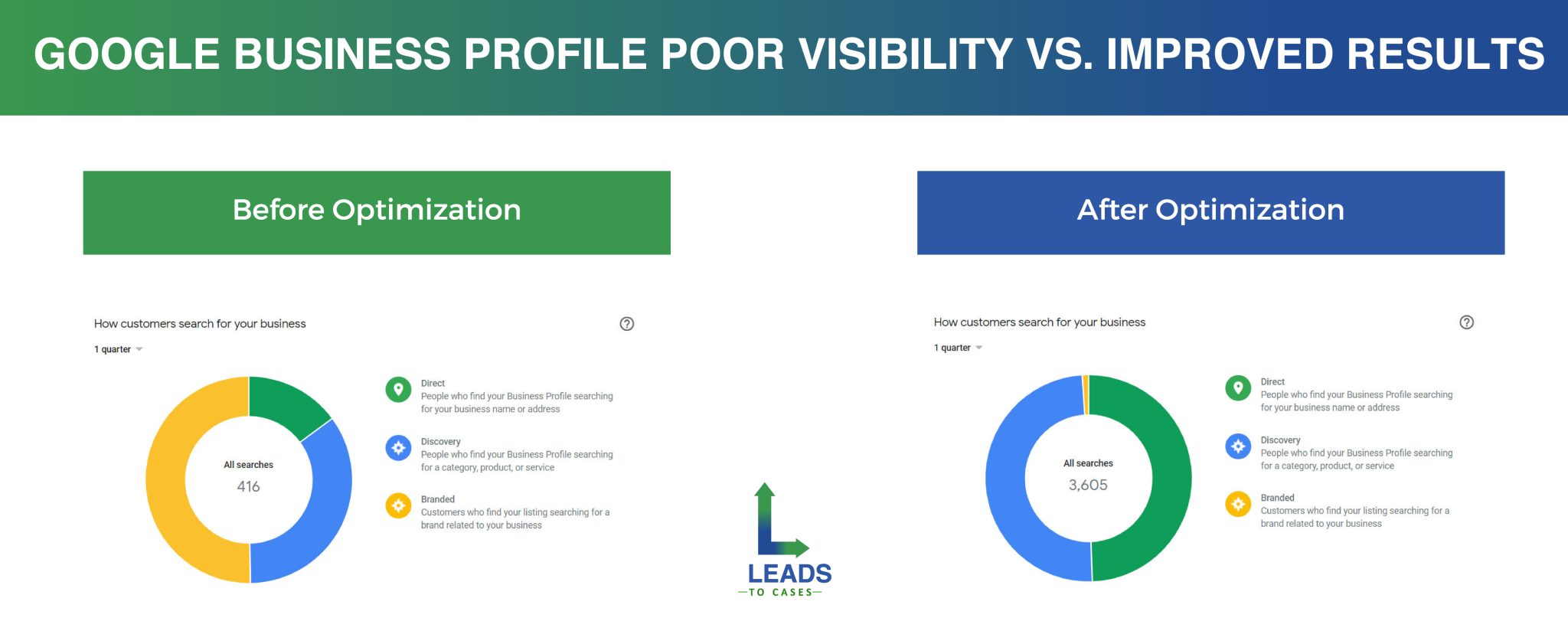
Get More Website Traffic
One of the biggest problems law firms face is not getting enough traffic to websites. Which costs you potential business and no one wants to lose out on qualified opportunities. That’s why we’re here to help… by following a few of the helpful tips listed below, we can help you boost traffic to your site, and make those potential opportunities easier to obtain, and more plentiful.
One of the first tips we’d like to share is:
- Use Videos
Videos often help with your website traffic because it generally ranks your website higher. When using videos you want to place them at the top of the page, which can increase the length of time visitors spend on your page, decrease your bounce rate and further engage your audience.
Here are several great examples of videos law firms can create or use successfully:
- How-to and advice videos: Create how-to videos or videos where attorneys share advice so your clients can gain a better understanding of your firm’s attorneys and practice areas.
- Q&A videos: answer commonly asked questions on video.
- YouTube videos: Upload your videos to YouTube, and link them back to your site.
Another tip we’d like to share is:
- Achieving Perfect On-Page Optimization
Check your current page content to make sure it’s up-to-date and includes the following:
- Social media sharing buttons: Include buttons that allow visitors to easily share your content on social media.
- A call to action in your meta description: Write compelling, action-oriented copy for your meta description to encourage people to visit your website.
- An SEO-friendly URL: Use short keyword phrases in your page URLs (e.g., DUI or DUI lawyer).
- Alt text for images: To ensure compliance with the Americans with Disabilities Act and other guidelines, make sure that alt text (alternative text) is thorough and descriptive. (Learn more about ADA compliance in one of my previous articles.)
- Authoritative outbound links: Include in your page contains links to articles on authoritative sites, and avoid linking to competitors. For example, law firms can link to court cases, court websites, local authorities, etc.
- Keywords in your page title: Include keyword phrases in your page title in addition to your unique selling proposition or tagline.
- H1 and H2 tags: Organize your content using headers, and make sure that H2 tags have an H1 tag that they support.
Another helpful tip in regards to optimizing your page content is to ensure that your pages have a fast loading speed. We all know how much we all hate waiting for a page to load, and it usually causes us to look elsewhere, which means, you could be losing traffic. If you would like to test your page speed, a good resource to use is Google PageSpeed Insights. If you use that resource we recommend having a score of 90 or higher.
- Identify And Target Specific Keywords
Google provides many helpful tools to see issues your site could have that may be causing your firm to not be getting as much traffic. Google’s tool, Google Analytics, allows you to review your site’s organic traffic sources and the keywords that are driving the most traffic to your website. From this list, you can cross-reference what keywords have high search impressions. Write those words down, and now you have a list of great terms to target.
We typically target primary keywords and secondary keyword phrases. Primary keyword phrases are phrases that page content focuses on specifics, such as “DWI lawyer Virginia.” Primary keyword phrases will drive the bulk of your content. Secondary keyword phrases, such as “DWI penalties in Louisiana,” relate to primary phrases. They may be more niche, but they provide traffic too. Targeting high-competition primary keyword phrases may pay off in the long term, but in the short term, they may not help you rank well, which is why it’s beneficial to create a plan for targeting both types of keywords.
- Attract High-Quality Links
Providing different links on your site is a fantastic way to get more traffic to your site. We have seen great results in improving your SEO when using relative links to relevant information. If you don’t really know how to obtain these, that’s okay, we’re here to help. One of the many great ways to do this is to participate in guest blogging on other sites. You could pair up with other industry leaders or even volunteer for advice columns where attorneys participate in “ask a lawyer” posts.
Infographics are another great way to attract links and can help break down complicated information, making it more digestible for audiences. If you create and design an infographic, you can request that other companies embed it on their site with a link to your site. The general idea behind this type of sharing is that people will find the visual information useful and share it with friends and family or on their social media sites.
- Monitor Site Performance And Update
Regularly monitoring your site’s performance and continuing to optimize it is critical. Websites require frequent updates to make sure that they’re running at peak performance levels.
Here are some helpful tips to ensure that your site maintains peak performance.
- Stay up-to-date on analytics. As we discussed above, your analytics are extremely important to increase your website traffic. More specifically, your site’s analytics provide valuable insight into your bounce and conversion rates. It is critical that you continue to stay up to date with this information to focus on the pages that are having more engagement. If you see that some pages have low engagement and high bounce rates, work to improve the content on these pages by incorporating videos (more on this below) and more valuable information.
- Fix 404 pages. You may not realize that some of the links on your site aren’t working. Some people may be clicking and receiving an error or 404 page. If your site has several of these 404 pages, it is imperative that you find the errors on these pages and correct them as soon as possible.
In conclusion, if you’re looking for more ways to boost traffic to your law firm’s website, start with researching keyword phrases, optimizing your web pages, building a content strategy, attracting high-quality links, monitoring your site’s performance, and using video.
When you choose to work with Leads To Cases, you get a dedicated and knowledgeable team that will get to work on these items and more, keeping you updated along the way. Let’s schedule a quick call to talk about how we can help your firm.















Post a comment